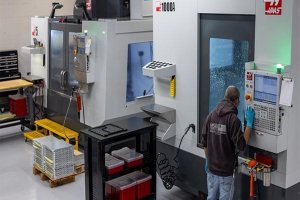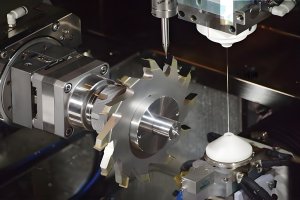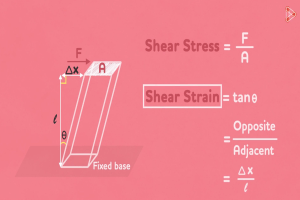Introduction to Precision CNC Machining of Bronze Parts
Precision CNC machining stands as a pivotal technology in the manufacturing of complex and high-quality bronze parts. Bronze, known for its durability and corrosion resistance, is extensively used in industries such as aerospace, automotive, and electronics. Selecting the right CNC machining supplier is crucial not only for maintaining quality but also for ensuring the longevity and functionality of the parts produced. This introduction sets the stage for understanding the critical criteria in selecting a proficient supplier.
What Are the Key Quality Standards for Precision CNC Machined Bronze Parts?
Quality standards are essential benchmarks that ensure each machined part meets the required specifications and industry standards. Essential quality standards include dimensional accuracy, surface finish, material properties, and consistency.
Data Table: Common Quality Standards and Their Impact:
| Standard Type | Description | Importance in CNC Bronze Machining |
|---|---|---|
| Dimensional Accuracy | Tolerances in the micrometer range | Critical for precision components |
| Surface Finish | Smoothness of the machined surface | Essential for functionality and aesthetics |
| Material Integrity | Absence of flaws like cracks | Vital for durability |
| Consistency | Uniformity across production batches | Key for large orders |
This table emphasizes the need to choose suppliers who not only adhere to these standards but also routinely exceed them to deliver superior products.
How Important Is Technical Expertise in CNC Machining of Bronze?
Technical expertise is paramount in machining bronze due to its unique challenges, such as its tendency to work harden and its abrasive nature, which can wear down tools quickly. Suppliers with a deep understanding of bronze and its properties can optimize machining processes to enhance product quality and reduce waste.
Case Study: A supplier implemented advanced toolpath optimization techniques for a complex bronze aerospace component, reducing production time by 30% and improving tool life by 50%.
What Should You Look for in a Supplier’s Production Capacity?
When selecting a CNC machining supplier, it’s important to assess their production capacity to ensure they can meet your volume requirements without compromising quality. Factors to consider include machine types, automation levels, and workforce expertise.
Data Table: Production Capacity Metrics to Evaluate:
| Metric | Description | Relevance to CNC Machining |
|---|---|---|
| Number of Machines | Total CNC machines available | Indicates volume capability |
| Types of Machines | Variety (e.g., 5-axis CNC machines) | Shows complexity handling |
| Shift Operation Schedules | Number of shifts per day | Reflects production speed |
This table helps purchasers understand how production capacity affects project timelines and overall reliability.
How Can Cost-Effectiveness Be Assessed When Choosing a CNC Machining Supplier?
Cost-effectiveness is not only about the initial quote but also involves evaluating the total cost of ownership which includes waste management, efficiency of production, and maintenance costs over time. A supplier’s ability to provide value-engineering options can significantly reduce costs without sacrificing quality.
Data Table: Comparing Supplier Cost-Effectiveness:
| Supplier | Initial Cost | Long-term Maintenance Costs | Overall Value |
|---|---|---|---|
| Supplier A | High | Low | High |
| Supplier B | Low | High | Moderate |
| Supplier C | Moderate | Moderate | High |
What Role Does Compliance with Industry Regulations Play in Selecting a Supplier?
Compliance with industry-specific regulations is crucial when selecting a CNC machining supplier, especially for industries where precision and safety are paramount. Regulations can include international quality standards like ISO 9001, aerospace standards like AS9100, or automotive standards like IATF 16949, which ensure suppliers meet universal quality management systems.
Data Table: Key Industry Standards and Compliance Impact:
| Industry | Standard | Compliance Requirement | Importance for CNC Machining |
|---|---|---|---|
| Aerospace | AS9100 | Strict quality control and traceability | Critical for safety and performance |
| Automotive | IATF 16949 | High consistency and defect management | Essential for reliability |
| General Manufacturing | ISO 9001 | Quality management systems | Important for international business |
This table highlights how compliance not only mitigates risk but also enhances trust and reliability in the supplier’s ability to deliver high-quality parts that meet stringent industry demands.
What Are the Advantages of Global Sourcing Over Local Sourcing for CNC Machined Bronze Parts?
Global sourcing for CNC machined bronze parts offers several significant advantages compared to local sourcing. These benefits include cost reduction, access to specialized skills, and the opportunity to tap into international markets. This section explores why many companies opt for global sourcing despite the challenges associated with it.
Cost Efficiency: One of the primary advantages of global sourcing is the potential for cost savings. Labor costs, raw materials, and operational expenses can vary significantly between countries. Companies can often find suppliers in regions with lower costs, which translates directly into reduced production expenses and increased profitability.
Access to Specialized Skills and Technologies: Different regions may specialize in certain manufacturing technologies or hold expertise in specific industries. For instance, certain countries might have advanced capabilities in precision CNC machining or specific treatments for bronze that are not as readily available or developed locally. Leveraging these specialized skills can lead to better quality and more innovative products.
Increased Capacity and Flexibility: Global suppliers often have larger operations or may be able to scale up more quickly to meet demand surges. This can be particularly important for companies looking to increase production volumes without the cost of expanding local facilities.
Diversification of Supply Chain Risks: By sourcing from multiple countries, companies can mitigate risks associated with supply chain disruptions. Global sourcing provides alternatives that can be crucial in case of local economic downturns, political instability, or natural disasters.
Data Table: Comparison of Local vs. Global Sourcing for CNC Machining:
| Aspect | Local Sourcing | Global Sourcing |
|---|---|---|
| Cost | Higher | Lower |
| Skill Specialization | Limited | Extensive |
| Capacity | Fixed | Scalable |
| Risk Diversification | Lower | Higher |
Case Study: A multinational electronics company experienced significant improvements in production costs and component quality after shifting from local to global suppliers for their bronze parts. They managed to reduce costs by 30% while accessing state-of-the-art CNC technology in Asia, which was not yet available from local suppliers.
Case Studies: Success Stories of Precision CNC Machining for Bronze Components
Documenting successful applications of precision CNC machining in various industries demonstrates the tangible benefits of choosing the right supplier.
- Aerospace Component Manufacturing: An aerospace company required highly precise bronze gears. By partnering with a specialized CNC machining supplier who provided both expertise and compliance with AS9100, the company achieved a 40% reduction in part rejections and enhanced the overall reliability of their flight hardware.
- Automotive Industry Success: A major automotive manufacturer sourced CNC machined bronze bearings from a supplier certified with IATF 16949. This partnership ensured high durability and performance consistency, crucial for automotive applications, leading to a long-term contract extension.
- Medical Equipment Innovation: Precision CNC machining was utilized to produce bronze components for advanced medical devices. The supplier’s adherence to stringent medical standards and precision requirements contributed to the successful deployment of new medical technologies.
Conclusion
Selecting the right CNC machining supplier for bronze parts is critical for maintaining quality, efficiency, and compliance with industry standards. The criteria discussed—ranging from technical expertise and production capacity to compliance and sourcing strategies—serve as a comprehensive guide for businesses looking to forge valuable partnerships with CNC machining suppliers. By understanding these aspects and examining real-world case studies, companies can make informed decisions that align with their strategic objectives and operational needs.
Other Articles You Might Enjoy
- Applications and Advantages of Bronze CNC Machining
1. Introduction: The Enduring Allure of Bronze in CNC Machining In this opening section, we explore the timeless appeal of bronze as a material for CNC machining. From its rich…
- What are the common challenges in the process of precision CNC machining bronze parts?
What Materials Considerations Are Crucial for CNC Machining Bronze? Bronze alloys vary widely in their composition and properties, impacting their machinability and the quality of the final product. Key considerations…
- What are the advantages of using precision CNC machining to produce bronze parts for food automation machinery?
Introduction to Precision CNC Machining for Bronze Parts Precision CNC machining is a critical manufacturing process used to produce highly accurate and intricate bronze parts. This process involves the use…
- Elevating Precision Standards through Chamfer in CNC Machining
1. Introduction: The Pursuit of Unparalleled Precision In the realm of CNC machining, precision is paramount. This section introduces the article by exploring the significance of precision in manufacturing and…
- Precision Prowess: Unveiling the Advantages of China CNC Machining
1. Introduction: The Role of Precision in Manufacturing Excellence In this introductory section, we delve into the critical role that precision plays in manufacturing and set the stage for an…
- Graphite vs. Bronze in CNC Machining: Which Offers Better Precision and Durability?
Introduction: A Brief Explanation of CNC Machining and the Purpose of this Article CNC machining, standing for Computer Numerical Control machining, is a manufacturing process where pre-programmed computer software commands…






